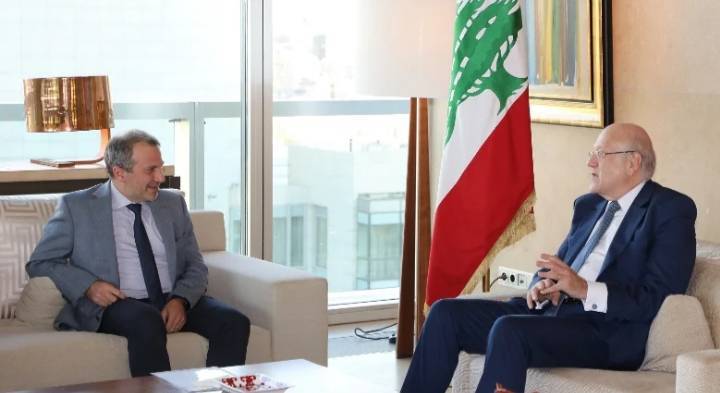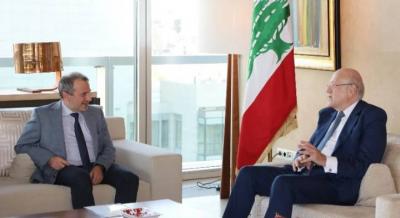The caretaker Prime Minister Najib Mikati succeeded in convening a second session for his government, bypassing all the constitutional considerations raised against him by the "Free Patriotic Movement" and the Maronite bishops. When Mikati was tasked with forming the government in 2021 after the resignation of Prime Minister Saad Hariri, joy filled the presidential palace, with praise for Mikati's performance and Aoun's confirmation that he could deal with him flexibly. However, it was only a few months before disagreements surfaced publicly, culminating in a major explosion after Mikati was tasked with forming a government post-elections, with Aoun accusing the prime minister-designate of procrastination and unwillingness to form the government.
After the clash between Aoun and Mikati, supported by head of the Free Patriotic Movement, Deputy Jibran Bassil, voices emerged from the Sunni community affirming that Aoun and his movement's problem is with the Sunni Prime Minister, regardless of his policies, and experiences have validated this theory. Just as President Aoun and his movement have a history with Hariri and "political Harirism," they also have countless stories with Mikati, beginning with Mikati's first appointment in April 2005. The task of that government was to conduct parliamentary elections and ensure a transfer of power after Lebanon was freed from Syrian control. At the time, Aoun, who was in Paris, criticized Mikati's government, stating, "I see them as fighters for power and Syria more than representatives of the opposition."
That phase passed as Saad Hariri regained leadership, and naturally, Aoun clashed with President Fouad Siniora, then with Hariri before his government was ousted in 2011, leading to Hezbollah choosing Mikati over the late Omar Karami. Aoun and Bassil initiated their first confrontation with Mikati during the government formation, as the general demanded the full Christian share for his bloc, claiming to be the primary and sole representative of Christians in the government, garnering ten ministerial portfolios for the "Change and Reform" bloc. With each appointment, there was a crisis between Aoun's ministers and Mikati, until Mikati aligned with President Michel Sleiman and the "Progressive Socialist Party," attempting to establish a missing balance, but pressures led to the resignation of Mikati's government.
Aoun's clashes with prime ministers continued, illustrated during his struggle with President Tammam Salam when the topic of extending the term of the then-army commander General Jean Qahwaji arose. Aoun and Bassil also attempted to constrain Hariri during his presidency of the early government of the mandate. Today, a new chapter is being written in the struggle between the "Free Patriotic Movement" and Mikati, and this saga has not ended with Aoun’s departure or even the election of a new president and the formation of a new government, especially since the French administration prefers Mikati's return to the premiership.
A differentiating factor in the current situation is the position of Hezbollah. Since the signing of the "Mar Mikhael" agreement, the party has always stood by the "Movement," whether wronged or oppressor. After Bassil's rebellion against the party and his refusal to support the candidacy of Marada Movement leader Sleiman Frangieh, the party attempts to send messages and blows to its Christian ally, currently siding with Mikati rather than the Aounists. Moreover, Mikati's circles affirm that the Prime Minister does not seek to open fronts or engage in disputes, but he is determined to call for a government session whenever absolutely necessary, noting that those obstructing presidential election sessions are the ones driving the situation into these crises, not the Prime Minister who strives to manage people's affairs and prevent the vacuum from growing and leading to further collapses. Faced with the Prime Minister's insistence, the "Movement" seeks available options for confrontation; it is no longer in a battle with Mikati alone, as matters may develop into a larger confrontation with the "Shiite duo," a bitter cup that Bassil does not wish to swallow.




